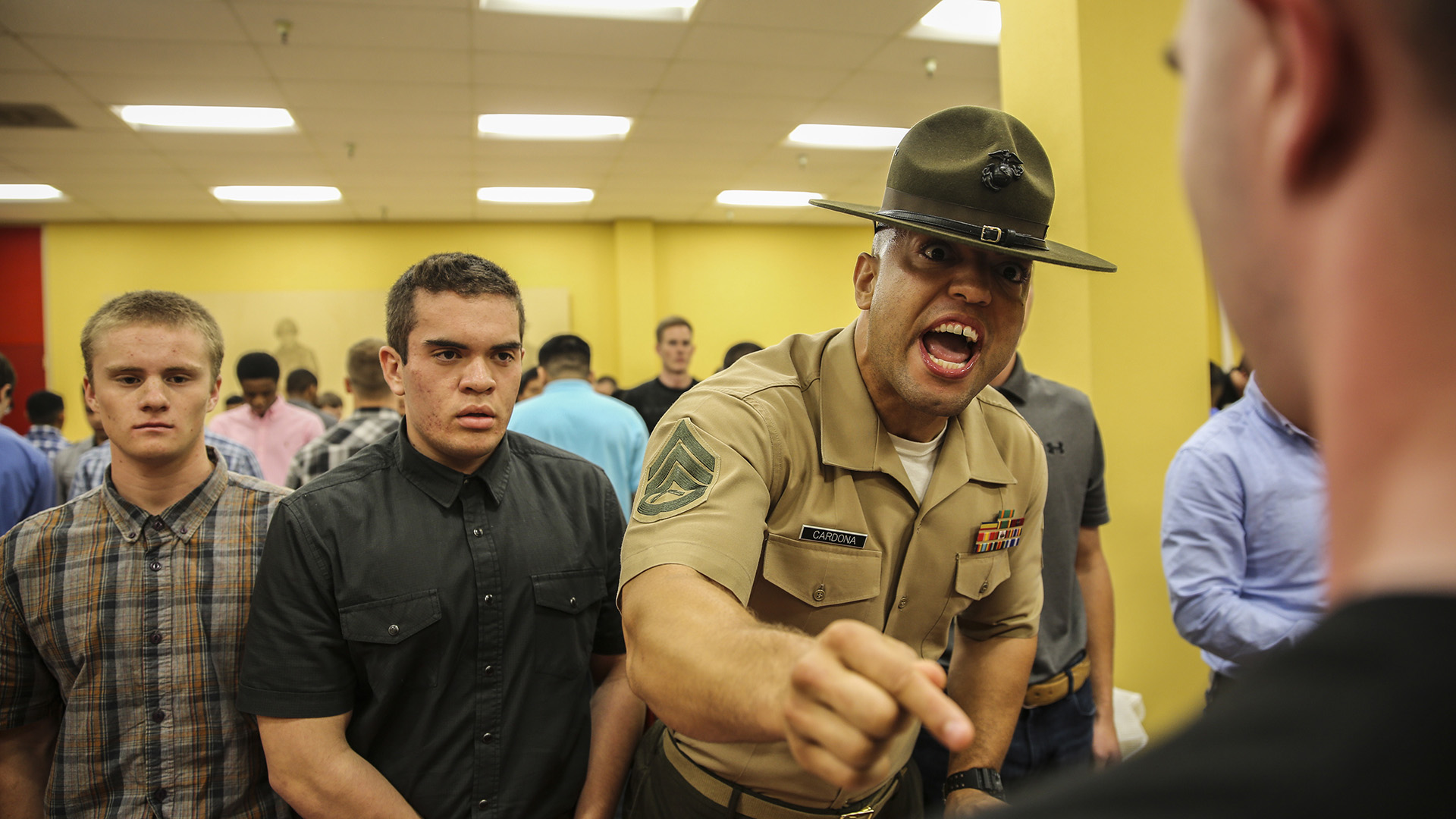

When it was unveiled in November, Marine Corps Commandant Gen. David Berger’s Talent Management plan appeared to open the door to the unthinkable: Allowing people to join the Marine Corps without going to boot camp.
While the Marine Corps already allows musicians in the President’s Own band to bypass recruit training, the notion that “exceptionally talented Americans” in technologically advanced fields might be able to likewise skip a foundational Marine Corps tradition to fill critically needed billets was met with much wailing and gnashing of teeth.
The Marines are a fascinating tribe. It is ingrained in Marine Corps culture that unless you have been screamed at by a drill instructor, who maliciously disgorged the contents of your seabag all over the squad bay, then you do not deserve to wear the Eagle, Globe, and Anchor.
But Berger recently told reporters that the idea of allowing civilians to join the Marine Corps at a rank commensurate with their education, experience, and ability would not necessarily include a pass for boot camp.
Subscribe to Task & Purpose Today. Get the latest in military news, entertainment, and gear in your inbox daily.
“We haven’t said one way or the other,” Berger told reporters during a May 5 roundtable. “We haven’t found the person yet. And when we find the person, we’ll go from there.”
So far, Marine Corps leaders have not yet decided on whether to change how Marines are currently recruited and trained, said Corps spokesman Ryan Bruce.
“The final decision will be made after careful consideration by HQMC [Headquarters Marine Corps],” Bruce told Task & Purpose. “As of the moment, there is no current path for Marines to skip entry-level training outside of the President’s Own.”
In his talent management plan, Berger wrote the Marine Corps needs to “infuse expertise into the force – at the right ranks” to have Marines who are experienced in highly technological and rapidly advancing fields, including robotics, artificial intelligence, and cyberspace.
Berger also added that only “highly qualified applicants in select specialties” would be allowed to join the Marine Corps “laterally” instead of the very bottom of the food chain. Such a recruiting tool would not be used to recruit a large number of Marines, nor would it likely apply to combat arms military occupational specialties.
Speaking to reporters, Berger said he should have done a better job explaining what he meant to Marines about having highly talented civilians joining the Corps, because he inadvertently gave the impression that he was opening the door for gunnery sergeants to join without going through recruit training.
He recalled how he spoke at a forum a couple of years ago and he asked Marines if they would be willing to let certain people skip boot camp to join the Corps.
“Obviously, that got translated into: Oh my God, we’re going to have fat, 38-year-old, long-hair, ring in the nose – that was never part of the equation,” Berger said. “What we’re actually talking about is: No, they will go through boot camp; they will go through Officer Candidates School. But when I have a discussion – a dialogue with Marines – I’m trying to prompt them out of their comfort zone – and probably took them way out of their comfort zone.”
Sgt. Maj. of the Marine Corps Troy Black stressed that the Marine Corps would only recruit civilians laterally on a very limited basis.
“We’re looking for the one, the two individuals with an exquisite skill that we can’t generate fast enough when we need it,” Black said at the roundtable. “So, in other words: If we were to develop a new capability – let’s use cyber as one of the many – if we needed someone with 15 or 20 years of experience to operate today in that environment, we don’t yet have anyone in the Marine Corps who’s been in that MOS for 15 years. Therefore, if we can find that exquisite capability, that is the one that we would bring in to be able to assist us where we need it.”
The latest on Task & Purpose
- The Marine Corps is headed for a pilot exodus
- ‘The king of battle’ — How US artillery in the hands of Ukrainians may reshape the war with Russia
- Marine intel instructors got caught calling students ‘whore’ and ‘slut’ in private chat. No punishment was recommended
- How to pass the new Air Force fitness test, according to a guy who oversaw 600 of them
- ‘Dirt boyz,’ ‘Port Dawgs,’ and ‘Red Horse’ — A guide to Air Force lingo for the rest of us
Want to write for Task & Purpose? Click here. Or check out the latest stories on our homepage.
